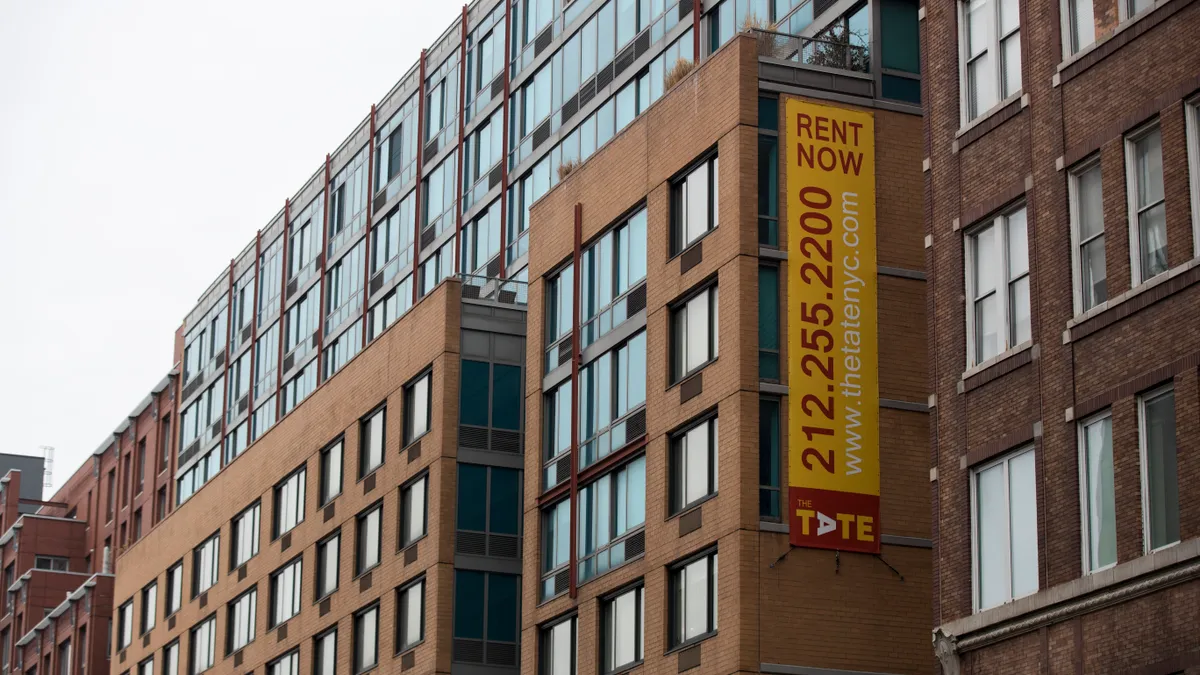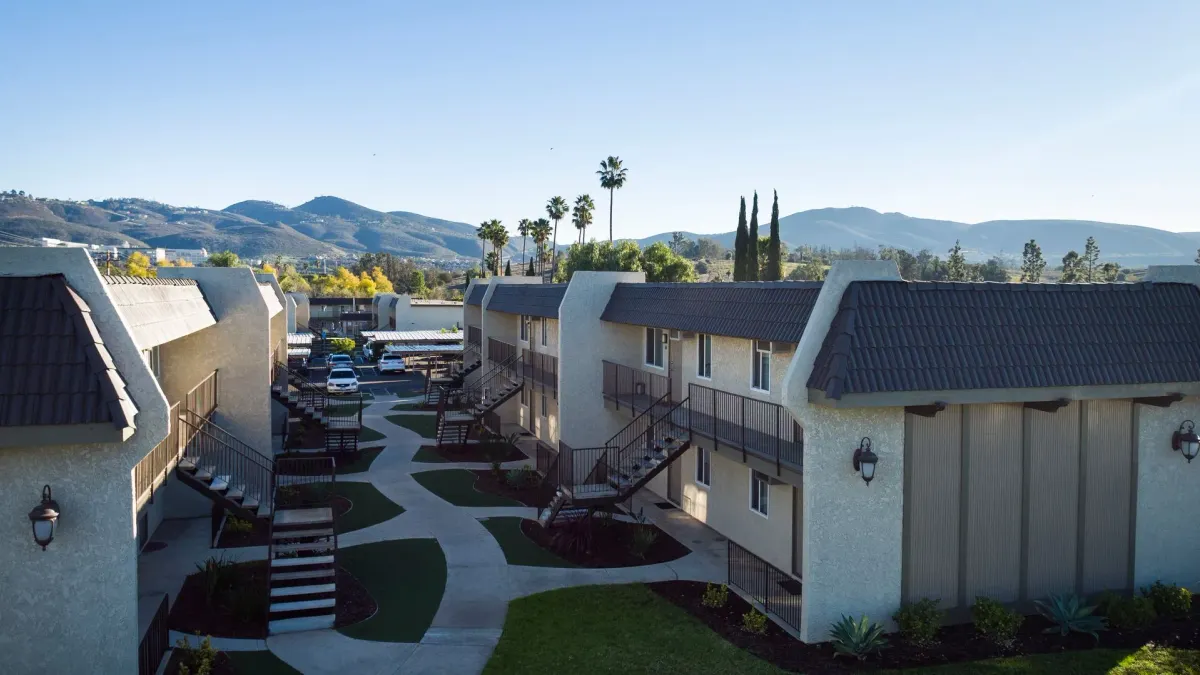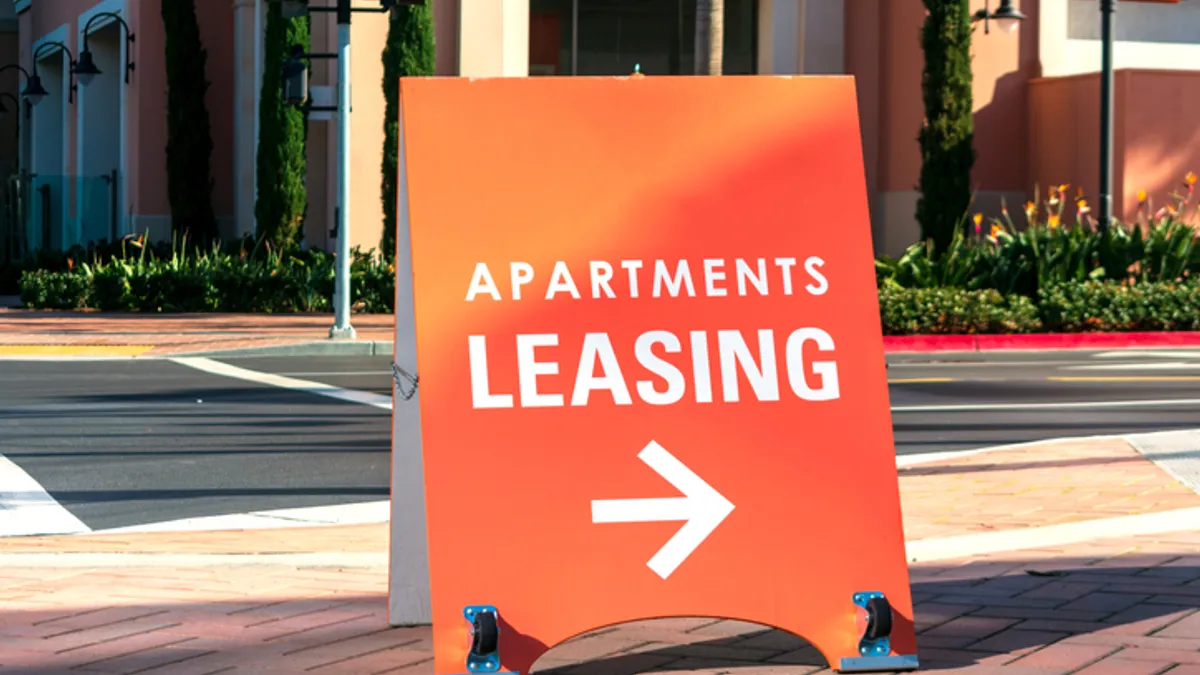The active apartment market kept Investors Management Group founder and CEO Neil Schimmel busy in 2021.
IMG more than doubled its volume in 2021 to $483.8 million (compared to $220 million in 2020). The company was a net buyer, acquiring seven properties, totaling 1,800 units, for $322 million. It sold five properties, totaling 1,116 units, for $161 million.
Since 2010, IMG has acquired more than 10,000 multifamily units (including Hardy Oak in San Antonio, Texas, pictured above), valued at $1.2 billion. It currently owns and manages $1 billion of multifamily totaling more than 4,500 units nationally.
The Los Angeles-based real estate sponsor focuses on buying and improving apartment communities in areas like Portland, Oregon; Seattle; Denver; San Antonio; Greenville, South Carolina and Charlotte and Raleigh in North Carolina.
“We keep tapping and tapping on other markets, but we haven't we haven't found good entry points,” Schimmel said.
Here, Schimmel talks with Multifamily Dive about inflation, speculation and how he selects the metros that he invests in.
This interview has been edited for brevity and clarity.
MULTIFAMILY DIVE: How do you choose your markets?
Neil Schimmel: They are priced properly and they have an intrinsic value per pound, especially if you look at macroeconomic [factors] as opposed to micro. Those are markets that tend to be where Baby Boomers, Gen Xers and millennials are converging.
What are the factors that influence your buying decisions?
We are tending to move to areas, Zoom towns in certain cases, where the [single-family] owners that live there happen to be more indigenous to the area. If you move into one of these markets, you're not moving in as an investor. You're moving in as somebody that's going to stay or you're somebody that's already been there.
If you're not trading in investor-driven housing that is going to get hit by all of these other factors, you're going to be in a safer zone. When [the investors] leave, there's not a vacuum of people. They have either been priced out or have left the area.
Why is important that residents be from the area?
What happens in these towns when people want to have babies? You move to a town and all of a sudden mom and dad are in the San Fernando Valley of Los Angeles. You need some babysitting and want to be back around your family.
Are you concerned about potential issues in some markets that have seen investors rush in over the past two years?
There is a lot of speculation and people coming in [to some markets]. Once that speculation isn't paying the return, there's somewhat of a vacuum that is created. There's going to be some pain felt.
Is it going to be over a long period, is it going to be a huge [quick] market correction or is it going to be something in between? I believe it's going to be a combination of all three.
What major issues do you see on the horizon for housing?
How much percentage of income somebody is paying on their housing is going to be one of the biggest issues moving forward.
You're going to pay the price at the gas pump. That's not going to change. You know, you're going to get a smaller box of Rice Krispies. But when it comes to your home — where you live and how you live — that’s the affordability question and bang for your buck.
Rents have made a 16% move and when you have people's incomes moving by 2% to 3%, in some places generously 5%, that spread isn’t going to work.
Quality living situations are going to be more important to people because, when the markets get choked and owners can’t hit their numbers, they're not doing what is necessary for the tenants to live an elevated life in their home. That's where there are winners and losers.
We're seeing a lot of volatility, whether it is gas prices jumping, inflation or interest rates rising. How will that affect the business?
At Investors Management Group, one of our goals is to be predictable and to do predictable things. I think we are moving into a place where predictability is becoming more uncertain. And within that period of time, we are looking for places where we can reposition into areas that will have less volatility.
Click here to sign up to receive multifamily and apartment news like this article in your inbox every weekday.
















